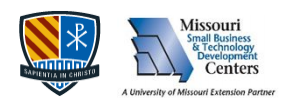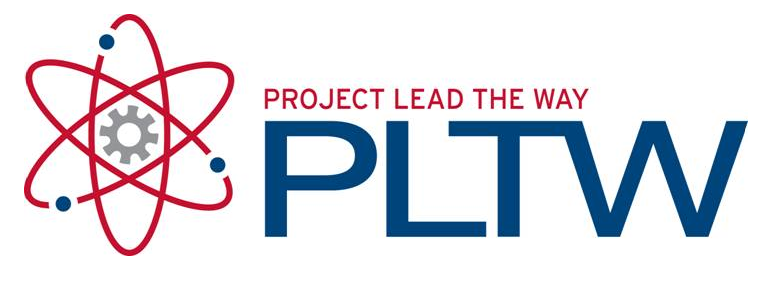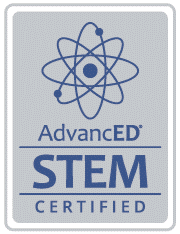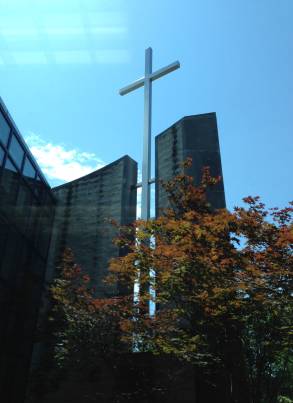Three new courses will be offered for the 2017-2018 school year. The design of these three courses leverages the principles of project-based learning. Students will be given ample autonomy to take ownership over their own, authentic research and will be sharing their learnings to a public audience. All of these courses model the type of education encouraged in the movie Most Likely to Succeed.
Fundamentals of Science Research
In this course, students will learn fundamental scientific research. Students will learn to use databases and search engines to search for scholarly scientific articles. They will practice reading primary scientific literature. Afterwards, students determine their research question. Students will then design and conduct an authentic research project. Design will include statistical analysis. Conduction of experiment will take place within Rockhurst science labs. Student progress will be chronicled throughout the year based on maintaining a worklog and a record of thinking. Reflection of the scientific inquiry process will be a major portion of this course.
Students will then design and conduct an authentic research project.
Students will be required to meet regularly with their teacher one on one throughout the year. The fruits of this work will be the completion of a written report of the authentic project followed by a presentation of the experience and findings at the end of year Rockhurst research symposium.
Course Details
Grade Level - 11th & 12th
Length - Two semester lab science course
Type of Course - Elective
Prerequisite - None
AdvancED STEM Standard Indicators: ST1.1, ST1.2, ST1.3, ST1.4, ST1.5, ST1.6, ST1.8, ST1.10, ST1.11 </i>
Entrepreneurship for Others
Rockhurst High School is developing this course with the assistance of the UMKC Small Business Development and Technology Center.

This course inspires and engages students with the perseverance and determination of an entrepreneurial mindset needed to succeed academically and in life. Relying on the values of Men for Others, students will grow more confident in themselves and their ability to positively affect their community. By utilizing an experiential, problem-based methodology, students are encouraged to apply what they are learning in real-world circumstances, enabling them to develop entrepreneurial attitudes, behaviors and skills.
Culminating with an “Entrepreneurship for Others” (EFO) Pitch Night
Utilizing peer learning, students identify problems to be solved, learn what problems create the greatest opportunities for the community and marketplace, assess what data they have, what assumptions need testing, and how and where to access new information that may lead to the resolution of the problem. Students refine their ideas in the real world by working through assumptions, data, and validation with experienced entrepreneurs. Culminating with an “Entrepreneurship for Others” (EFO) Pitch Night, open to the public, students will then present their learning canvas experiences and any associated products or services.
Course Details
Grade Level - 11th & 12th
Length - One semester course
Type of Course - Elective
Prerequisite - None
AdvancED STEM Standard Indicators: ST1.1, ST1.2, ST1.3, ST1.4, ST1.5, ST1.6, ST1.7, ST1.8, ST1.10, ST1.11 </i>
Principles of Engineering
(A course by Project Lead the Way)
Principles of Engineering (POE) is a foundation course of the high school engineering pathway. This survey course exposes students to some of the major concepts that they will encounter in a postsecondary engineering course of study. Through problems that engage and challenge, students explore a broad range of engineering topics, including mechanisms, the strength of materials and structures, automation, and kinematics. The course applies and concurrently develops secondary level knowledge and skills in mathematics, science, and technology.
It also allows students to develop strategies to enable and direct their own learning, which is the ultimate goal of education.

Students have the opportunity to develop skills and understanding of course concepts through activity-, project-, and problem-based (APB) learning. By solving rigorous and relevant design problems using engineering and science concepts within a collaborative learning environment, APB learning challenges students to continually hone their interpersonal skills, creative abilities, and problem solving skills. Students will also learn how to document their work and communicate their solutions to their peers and members of the professional community. It also allows students to develop strategies to enable and direct their own learning, which is the ultimate goal of education.
Course Details
Grade Level - 11th & 12th
Length - Two semester science course
Type of Course - Elective
Prerequisite - None
AdvancED STEM Standard Indicators: ST1.1, ST1.2, ST1.4, ST1.5, ST1.6, ST.1.11 </i>




Comments